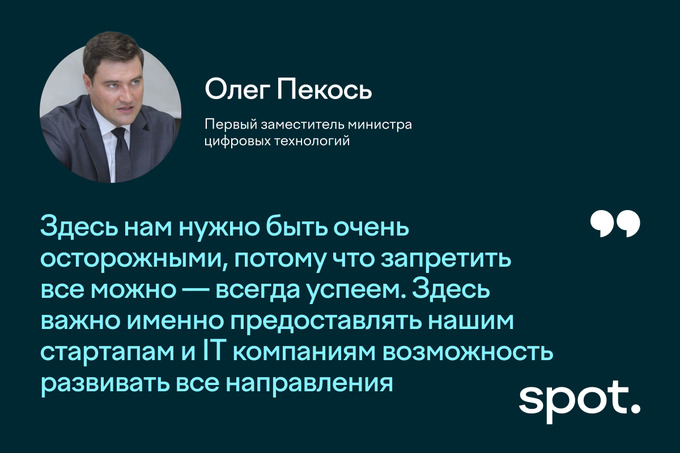The First Deputy Minister of Digital Technologies, Oleg Pekos, shared in an interview with Uzinfocom the plans for the development of artificial intelligence in Uzbekistan.
According to him, there are two models of AI regulation in the world. The first model, as seen in the USA and UAE, involves minimal government intervention: technologies develop freely, and legislation adapts to specific products.
The second model is that of the European Union, where strict laws have already been implemented, which, according to the expert, slows down development and does not foster the emergence of startups.
Within the framework of the presidential decree, a “regulatory sandbox” will be implemented. This will allow the launch of projects that currently do not comply with legislation but pass special approval from a commission while adhering to personal data protection norms and other standards.
“Within this sandbox, let’s all observe this process, but develop and create. This is the most appropriate position right now, as regulating what we do not know how to manage is impossible. We cannot rely on any existing experience, and it is best not to regulate at this stage,” the official noted.
Additionally, a large GPU cluster will be established in Uzbekistan—a powerful infrastructure for training AI models.
Companies that pass the evaluation will gain access to these resources:
- free of charge: for projects addressing social issues (for instance, in healthcare or urban projects);
- on a commercial basis: for products with commercial potential.
Startups will also be provided with the necessary data for enriching AI models.
This approach, according to Pekos, will serve as the “foundation for the rapid development of AI” in the country, as critically important data and computing power are not always available outside the country.
Next year, the goal is to simplify access to infrastructure: any startup will be able to obtain resources for training models and launching them with just “two clicks.” “Creating such infrastructure will be the foundation for the rapid development of AI in our country,” the deputy minister emphasized.
Earlier, Spot reported that in two months, 112 exporting companies became residents of IT Park.
